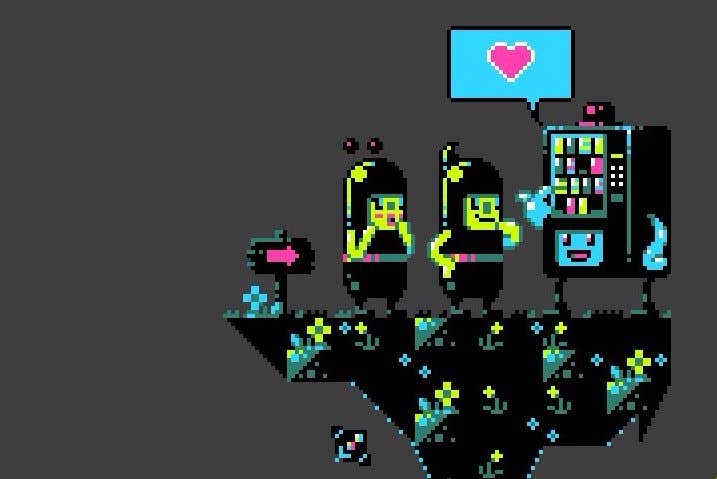Game Jolt's Marketplace lets indies decide their own revenue share
No more than 10% will be accepted, devs encouraged to invest sales revenue in other games on the platform
Game Jolt has integrated a Marketplace to its distribution platform, introducing commercial games to the mix for the first time since it launched in 2008.
While this represents a major departure for Game Jolt, which built its reputation as a platform for experimental freeware, the new Marketplace is motivated by the same community focused principles. According to Game Jolt's founder, the integration of commercial game sales is the result of demand within its community, specifically from developers who are forced to leave that audience behind when they want to start selling their games.
"I want to help give developers the opportunity to turn their game making passions into careers," Game Jolt's founder, who goes by the name "CROS," said in a recent blog post. "To allow them to do what they love without having to 'sell their souls' to publishers, or waste their time and emotions waiting on certain platforms to deem their hard work worthy of success.
"I want developers to have control over their own destiny."
"I want to help give developers the opportunity to turn their game making passions into careers"
And Game Jolt is backing up those words with action. The Marketplace will be free to use, and its Game API will give developers access to the features and services you might expect from a commercial platform: high-scores, achievements, game session logging, user verification, and cloud data storage.
Where it departs from the norm is in the details. Developers can choose the percentage of sales revenue that Game Jolt receives, but nobody is allowed to give more than 10 per cent - around a third of the amount demanded by other digital marketplaces. Soundtracks, artwork and other extra content can also be sold through the Marketplace, and developers will have the freedom to set their own prices or opt for a "pay-what-you-want" model. In turn, users will be able to pay above the asking price for any item, and in doing so they will be featured as a "Supporter" on that game's page.
And there's more. Any revenue earned from sales on the Marketplace will be stored in a "Wallet," and developers will have the option to withdraw that money at any time. However, Game Jolt is keen to encourage a mutually supportive community, so money spent from a Wallet on other games will not incur any payment processing fees, and Game Jolt will not take a cut of the sale.
According to CROS, the existence of a commercial Marketplace will not undermine the importance of freeware games. "It's an addition, not a replacement," CROS said. "Game Jolt will always be the place to find the best, the weirdest, and the most interesting free stuff. Now it'll also be the place to find the best, the weirdest, and the most interesting commercial stuff."
You can visit the Game Jolt Marketplace for more information.









